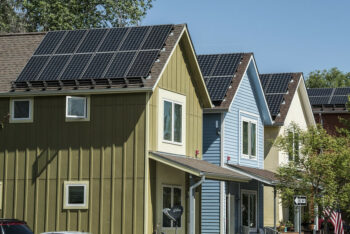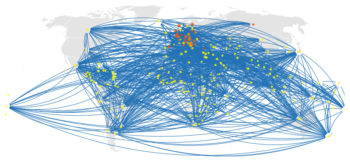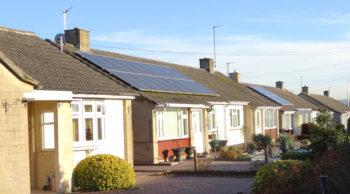Stefano Carattini

Stefano Carattini is an Assistant Professor in Economics in the Andrew Young School of Policy Studies at Georgia State University. He studies energy and environmental policy, behavioral economics, public economics, and political economy. His research combines policy evaluation, to examine how policies work, with empirical analyses of their political economy. He has also been working on cooperative (pro-social) behavior and the diffusion of green behaviors, practices, and technologies.
Background
Stefano is one of the recipients of the Heinz König Young Scholar Award, delivered by the Mannheim Centre for European Economic Research (ZEW). Prior to joining Georgia State, he was an Associate Research Scientist at Yale University, where he was also a Lecturer in the School of Public Health. He obtained a PhD in Economics from the University of Barcelona and a MSc in Economics from the University of Lausanne. He also holds a BA in Socio-economics from the University of Geneva.
Key research interests
- Environmental economics
- Public economics
- Behavioral economics
Research
Research - 2023
We examine the relationship between contemporaneous fine particulate matter exposure and COVID-19 morbidity and mortality using an instrumental variable approach.... Read more

Research - 2022
This paper uses network analysis to study the structural properties of international environmental cooperation. Read more

Peer-to-peer solar offers households who cannot have solar panels fixed to their own homes to access solar energy from their neighbours. But because this is an invisible form of pro-environmental behaviour, the rewards in the form of social approval are lower. This working paper finds that the ability to share reports of green behaviour online made people more likely to show interest in the scheme. Read more

A significant share of German municipalities have amended their building codes to restrict solar installations, often to preserve the historical nature of towns. These restrictions have an economically important impact on solar adoption. These restrictions should be reviewed to see whether they are still warranted today and in the future, as technology evolves. Read more

Research - 2021
Building on a large body of theoretical and experimental literature, the authors of this paper hypothesize that trust shared in a society may positively affect global cooperative behavior. Read more

Increasing the uptake of behaviours that are not yet niche is crucial to the sustainable energy transition. The authors of this paper test a novel approach to foster the uptake of renewable energy tariffs among a large sample of households in England and Wales. Read more

This paper applies the tools of network analysis to understand the global network of international cooperation created by the system of international environmental agreements, which number more than 2,000. Read more

The Conference of the Parties (COP) has proven a valuable outlet to advance the climate agenda. The combination of high... Read more

Households are key actors in decarbonizing our economy, especially when it comes to investments in a decentralized energy system, such... Read more

Research - 2020
Examining the relationship between contemporaneous exposure to fine particulate matter and COVID-19 morbidity and mortality, this paper, using US data, finds that fluctuations in local air quality can almost immediately impact the rate of confirmed cases and deaths from the disease. Read more

Cooperative behavior is essential for societies to thrive and for humanity to address local and global social dilemmas. This paper combines several large-scale surveys with different strategies for identifying trust, to shed new light on the determinants of cooperative behavior, including that needed to advance progress on climate change mitigation. Read more

The authors of this paper devise a new strategy for social interventions designed to increase climate-friendly behaviour, testing the proclivity of attendees at a major European environmental economics conference to offset their carbon emissions from travelling to the conference. Read more

This paper studies the relationship between generalised trust in other members in society, temperature fluctuations during the maize growing season, and international migration by asylum seekers, asking whether trust mitigates or increases the impact of climate change on migration. Read more

Research - 2019
Climate change and global poverty are the most pressing issues of this century. If insufficiently addressed, climate change will exacerbate... Read more

This paper focuses on the Indian context and investigates, over a relatively long time-frame, whether social spillover effects might have played a role in a household's decision to use LPG, and how these effects varied across different sub-populations. Read more

The authors of this paper show that while a convergence towards relatively high carbon prices is more than welcome from a climate perspective, central banks and other agencies responsible for financial stability may need to play close attention to such development. Read more

Climate change is a global externality that has proven difficult to address through formal institutions alone due to the public... Read more

This paper describes the benefits of a game created as an active learning method to teach current and future decision-makers about the ‘cap and trade’ system, one of the most innovative policy options developed by environmental economists. Read more

This paper investigates the role of ‘social spillovers’ – people learning from and imitating the behaviour of other people – in the adoption of new technologies, with a focus on liquefied petroleum gas (LPG) in India. The conclusions are important for policymakers seeking to hasten the switch to cleaner energy sources in developing countries. Read more

Research - 2018
This paper investigates the role of ‘social spillovers’ in the adoption of new technologies. The authors find that the French-German language border in Switzerland acts as a barrier to social interactions and, eventually, to the adoption of new technologies – in this case solar PV. Read more

Abstract Carbon taxes represent a cost‐effective way to steer the economy toward a greener future. In the real world, their... Read more

This paper finds that the culture of cooperation sustained by trust within a country positively affects international cooperative behaviour, showing that an increase in trust between citizens results in larger cuts in carbon dioxide emissions. Read more

Environmental taxes are often underexploited. This paper analyses the effectiveness of a garbage tax, assessing its effects on multiple outcomes... Read more

Following the entry into force of the Paris Agreement in November 2016, governments around the world are now expected to... Read more

Research - 2017
This research finds that households, businesses and farms are more likely to install solar panels if others in their neighbourhood... Read more

Carattini, S., Baranzini, A., Thalmann, P. et al. Environ Resource Econ (2017). doi:10.1007/s10640-017-0133-8 Read more

Abstract Carbon pricing is a recurrent theme in debates on climate policy. Discarded at the 2009 COP in Copenhagen, it... Read more

This paper surveys the existing empirical evidence on the scope for cooperation in the climate commons and on the effectiveness... Read more

Abstract This paper analyzes the drivers of carbon taxes acceptability with survey data and a randomized labeling treatment. Based on... Read more

Research - 2016
This paper analyzes the decision of “green” economists to participate in the carbon offset market, and how this decision is... Read more

Following the entry into force of the Paris Agreement in November 2016, governments around the world are now asked to... Read more

Abstract The market for voluntary carbon offsets has grown steadily in the last decade, yet it remains a very small... Read more

The market for voluntary carbon offsets has grown steadily in the last decade, yet it remains a very small niche.... Read more

This paper addresses the question of the acceptability of cost-effective climate policy in a real-voting setting - the 2015 ballot on energy taxes in Switzerland. Read more

Many people are against a garbage tax even though it often works. We study how a Supreme Court decision, mandating... Read more

The idea of a global carbon price has been a recurrent theme in debates on international climate policy. Discarded at... Read more

Policy
Policy - 2017
Taxing carbon is one of the best ways to incentivise the reduction of greenhouse gas emissions but is often faced with opposition. This report explores practical ways through which carbon taxes can be made more politically attractive. Read more


